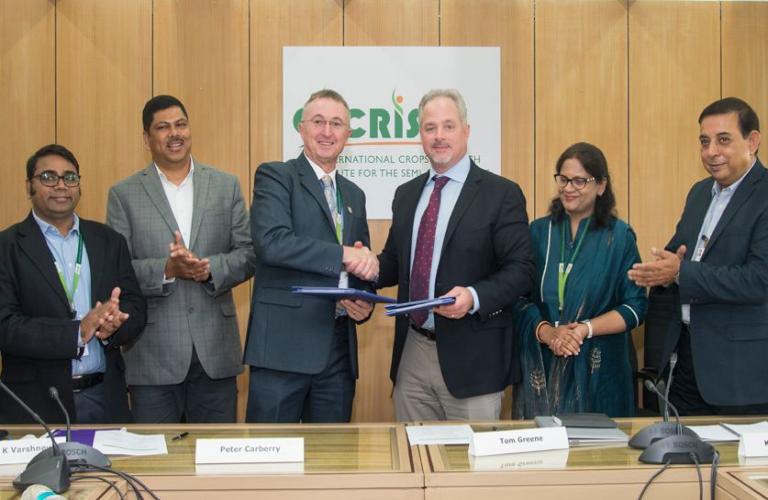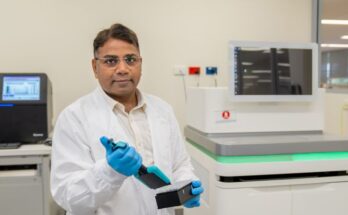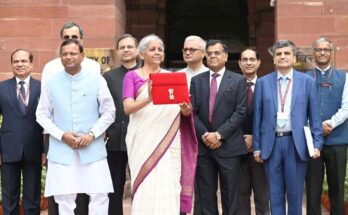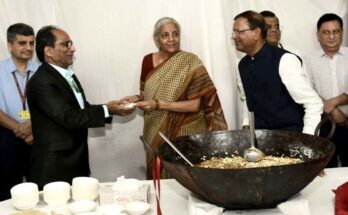HYDERABAD, April 12, 2018: The International Crops Research Institute for the Semi-Arid Tropics (ICRISAT) and Corteva Agriscience™, Agriculture Division of DowDuPont, today inked a multi-year partnership to strengthen food security by improving crops that feed millions through sharing of high-tech and modern breeding technologies
.
A Master Alliance Agreement (MAA) was signed between Peter Carberry, Director General (Acting), ICRISAT, and Tom Greene, Senior Research Director, Corteva Agriscience™. The technology sharing includes CRISPR-Cas gene editing, adapting transformation techniques to new crops, and applying knowledge of plant biochemical pathways with the goal of productivity and quality improvements for crops that feed millions of people. DuPont Pioneer, now part of Corteva Agriscience™, will provide access to intellectual property, material and know-how related to CRISPR-Cas and plant transformation.
Carberry, who is also the director of Global CGIAR Research Program on Grain Legumes and Dryland Cereals (GLDC), said: “ICRISAT and Corteva Agriscience™ share goals of developing innovative technologies and promoting their translation into next-generation agricultural products to benefit the smallholder agriculture farmers in the drylands. Such public-private-partnerships are actively sought and are critical to achieve the desired impact and success of the GLDC Program.”
Tom Greene, Corteva Agriscience™, said: “We look forward to applying the cutting-edge technology, like CRISPR-Cas, to address challenging crop production and consumer-facing quality problems. The combination of experience from our scientists and refinement of new technologies offer promising areas of research and development for select crops that don’t receive enough attention, even though these crops feed millions.”
“With Corteva Agriscience™ and ICRISAT scientists working together we will see rapid improvement in technologies towards developing more productive crops and a more prosperous agriculture for smallholder farmers,” said Pooja Bhatnagar-Mathur, Principal Investigator, ICRISAT and co-developer of the research plan.
“Collaboration will bring together expertise and experience that complements each other. Once we started discussions on the research plan, the collaboration came together quickly,” said Amitabh Mohanty, Principal Investigator, Corteva Agriscience™, and co-developer of the research plan.
The plan to work together on crops such as sorghum and millet was solidified at a meeting during the 2017 World Food Prize where ICRISAT Director General David Bergvinson and Tom Greene of Corteva Agriscience™ outlined general research concepts, targets and available technology that would help drive solutions.
Corteva Agriscience™ is applying CRISPR-Cas as an advanced plant breeding tool to develop crops with greater environmental resiliency, productivity and sustainability. It has defined CRISPR-Cas guiding principles, which includes enabling others wanting to develop agricultural products using CRISPR-Cas by providing access to its intellectual property, technology capabilities, infrastructure and scientific expertise.
ICRISAT is a non-profit, non-political organisation that conducts agricultural research for development in Asia and sub-Saharan Africa with a wide array of partners throughout the world. Covering 6.5 million square kilometers of land in 55 countries, the semi-arid tropics have over 2 billion people, and 644 million of these are the poorest of the poor. ICRISAT innovations help the dryland poor move from poverty to prosperity by harnessing markets while managing risks – a strategy called Inclusive Market-Oriented Development. ICRISAT is headquartered in Hyderabad, Telangana, India, with two regional hubs and six country offices in sub-Saharan Africa. It is a member of the CGIAR System Organisation.
Corteva Agriscience™, Agriculture Division of DowDuPont™ is intended to become an independent, publicly traded company when the previously announced spinoff is complete by June 2019. The division combines the strengths of DuPont Pioneer, DuPont Crop Protection and Dow AgroSciences.
ICRISAT, DowDuPont to share advance breeding technologies




